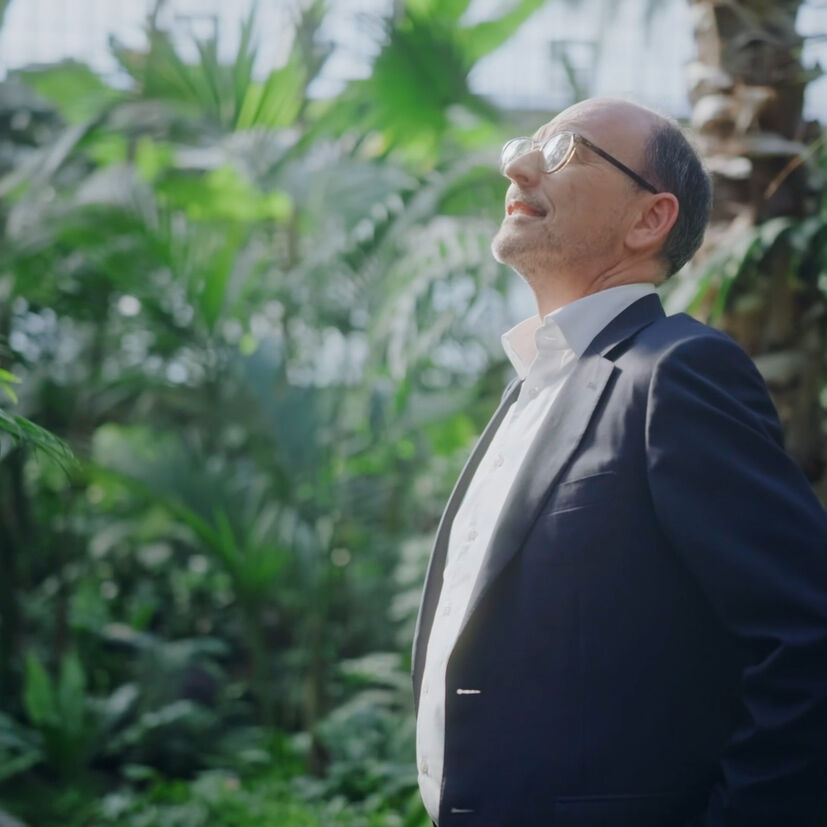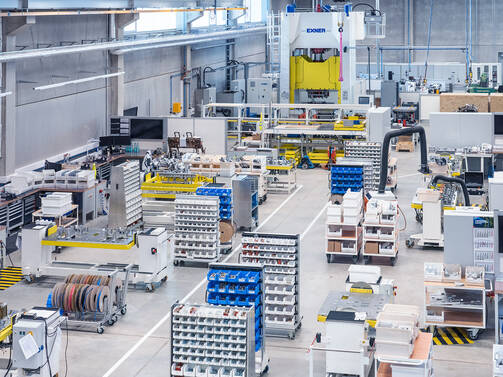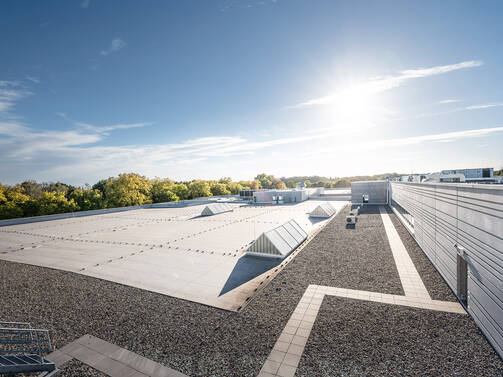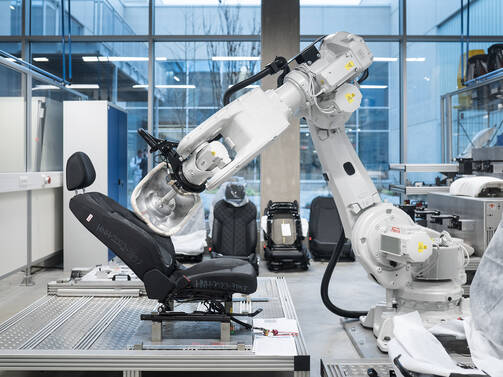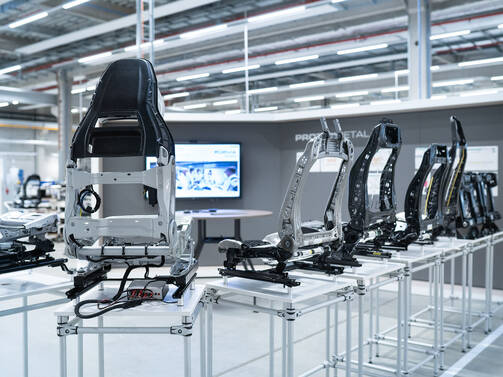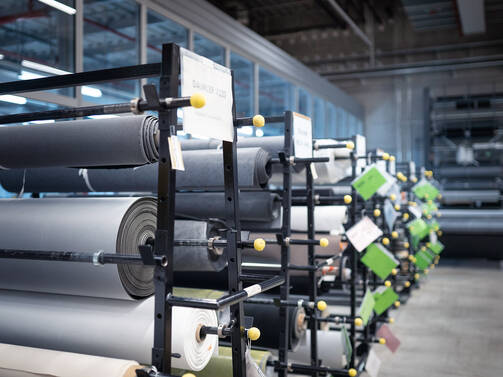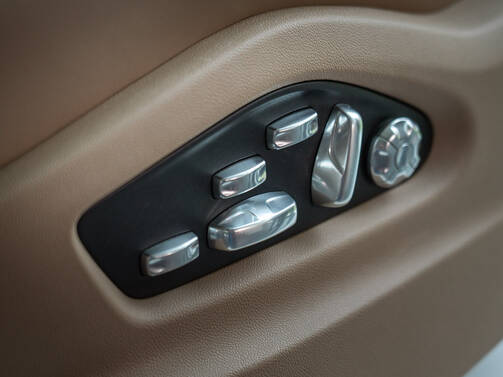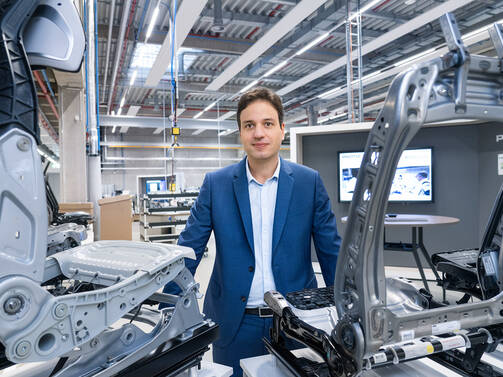We are driving the mobility of the future forward. Sustainably.
ESG-linked Schuldschein for Faurecia
Focus on the mega trends in the sector
“We develop technologies to help support the sustainable transformation of the automotive industry,” says Selim Hadj-Smail, Vice President Group Financing and Treasury at Faurecia, part of the FORVIA Group and the world’s seventh largest automotive supplier. In the company’s eyes, the most important drivers of development are in the fields of electrification and automation. With a view to playing an even bigger role in shaping development in these areas, Faurecia has acquired German technology specialist HELLA GmbH & Co KGaA. In the words of Selim Hadj-Smail, “the merger with Hella is a strategic decision, as Hella’s product portfolio is extremely well-positioned in terms of the automotive mega trends. We also share a common cultural base – particularly when it comes to combating climate change.”
„We develop technologies to help support the sustainable transformation of the automotive industry.”
Selim Hadj-Smail,
Vice President Group Financing and Treasury at Faurecia
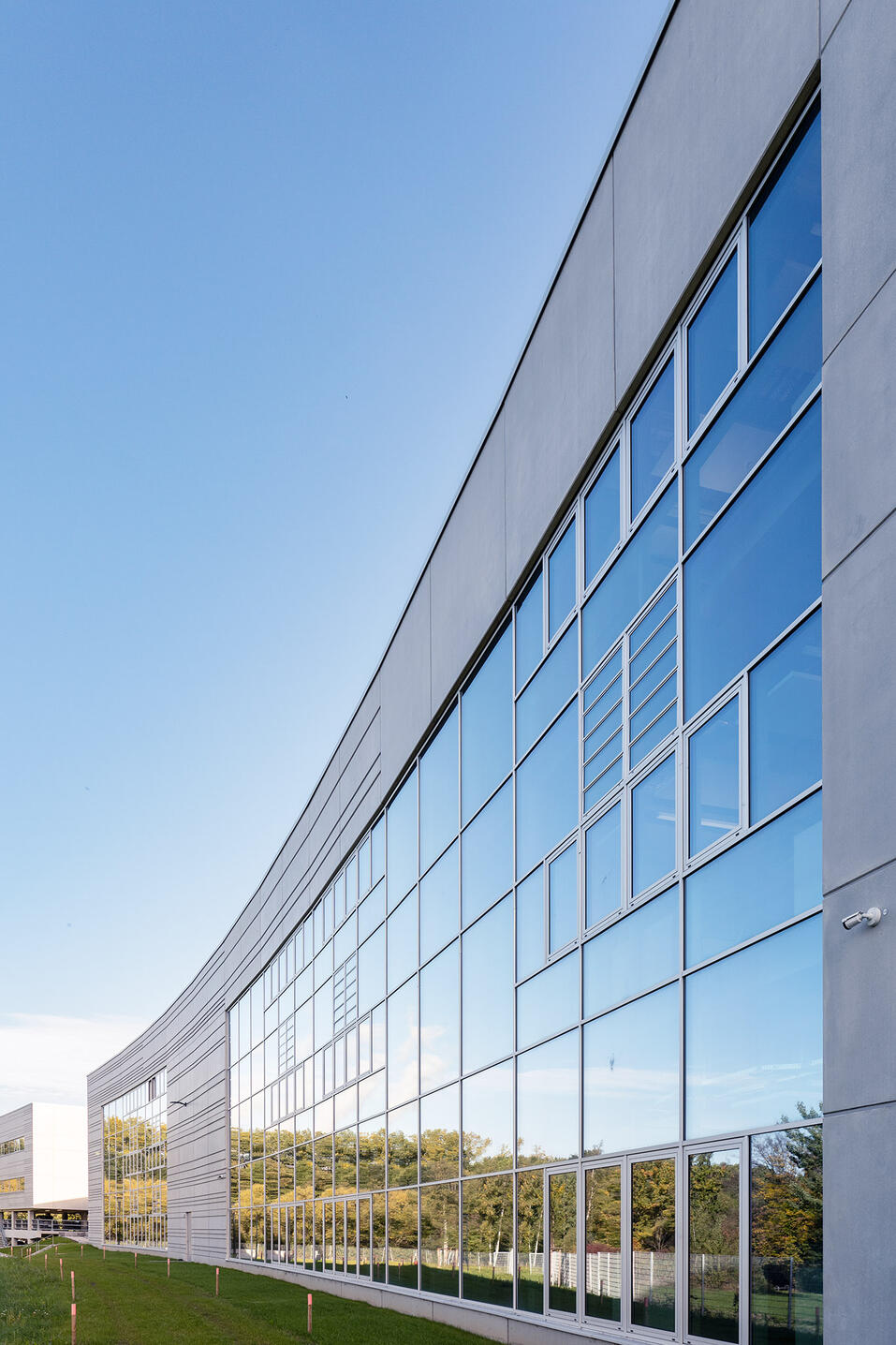
CO₂ -neutral production by 2025
The acquisition was facilitated in part by an ESG-linked Schuldschein from Helaba that is coupled to the French company’s ambitious sustainability strategy. “Our objective,” says Selim Hadj-Smail, “is to achieve CO₁ neutrality in all our production facilities by 2025. In the interim, we are aiming to reduce our CO₁ emissions by 20% from 2023 onwards.” Faurecia is already a leader in the development of sustainable technologies for use in vehicle interiors, offering its customers a portfolio of energy-optimised electronics, sustainable materials with very low CO₁ emissions and lightweight components. This is because “a vehicle’s weight is the key factor when it comes to its energy consumption and to reducing environmental pollution,” according to Selim Hadj-Smail.
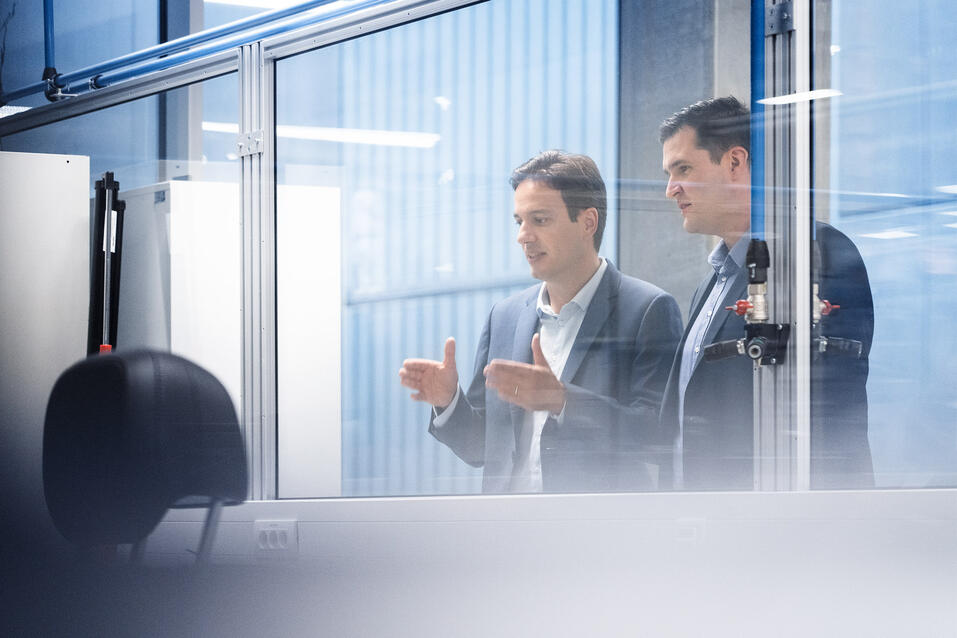
„A vehicle’s weight is the key factor when it comes to its energy consumption and to reducing environmental pollution.”
Selim Hadj-Smail,
Vice President Group Financing and Treasury at Faurecia
With more than 13.000
employees and present at 40 locations in Germany
We advance the economy of tomorrow. Sustainably.
Sustainable financing solutions: Our commitment to the environment, society and people.
Transformation as a challenge and an opportunity
Faurecia is not the only company affected by this transformation process: the entire automotive industry is currently undergoing profound change. The biggest challenge, according to Selim Hadj-Smail, lies in the size and complexity of the sector as a whole. As a direct – tier 1 – supplier for manufacturers such as VW, Renault, Peugeot, Porsche and many others, Faurecia alone cooperates with some 3,000 further suppliers. “Picture the sector as a massive ferry that can only change course slowly,” says Selim Hadj-Smail, who goes on to point out that the industry also employs many millions of people. Although an international rulebook could support the transformation, he is convinced that “the manufacturers will improve their products on their own initiative,” because “vehicles with a lower consumption and less weight offer clear competitive opportunities.” Not content with merely meeting current sustainability standards, Faurecia is endeavouring to exceed them. Given the current energy prices, the French company is now benefiting enormously from the consistent implementation of its extensive sustainability policy.
„The manufacturers will improve their products on their own initiative.”
Selim Hadj-Smail,
Vice President Group Financing and Treasury at Faurecia
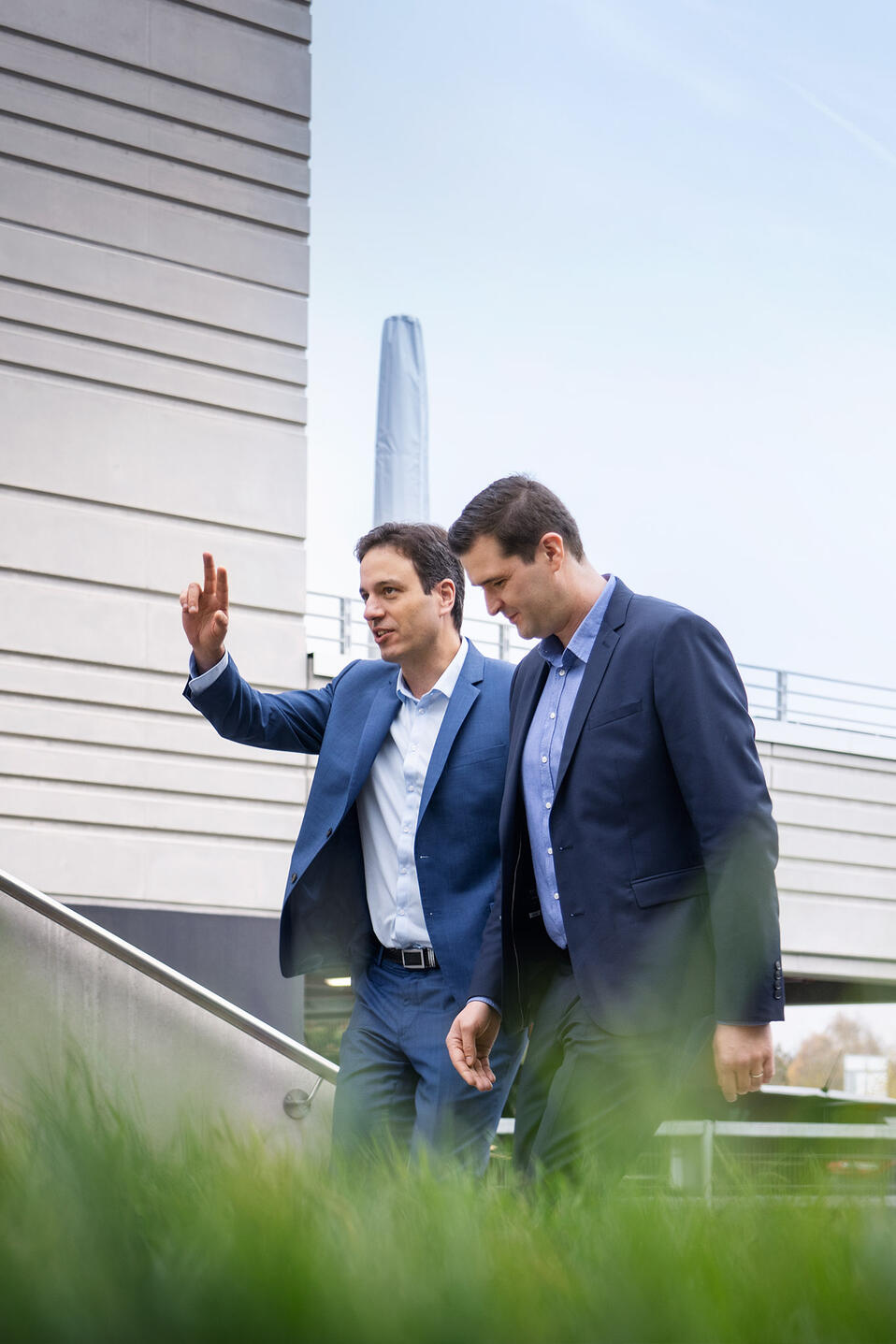
Leading Schuldschein arranger with expertise in sustainable finance
Opting for a sustainable form of financing, such as the ESG-linked Schuldschein, was consequently just a logical step as part of a future-oriented strategy. Selim Hadj-Smail emphasises the importance of a suitable finance partner in this context. The successful implementation of the transaction benefited enormously from the partnership with Helaba, “which is not only one of the leading arrangers in the promissory note market, but also boasts the requisite expertise in sustainable finance.”
“As regards ESG in particular, we very quickly realised that, for Helaba, sustainability is a core topic rather than just something seen as nice to have.” Here, Hadj-Smail highlights the initiative of the team of experts that developed an innovative approach for this ESG-linked Schuldschein, which Faurecia is convinced will transform the market. “This is a type of collaboration that we greatly appreciate,” concludes Selim Hadj-Smail.
Selim Hadj-Smail,
Vice President Group Financing and Treasury at Faurecia
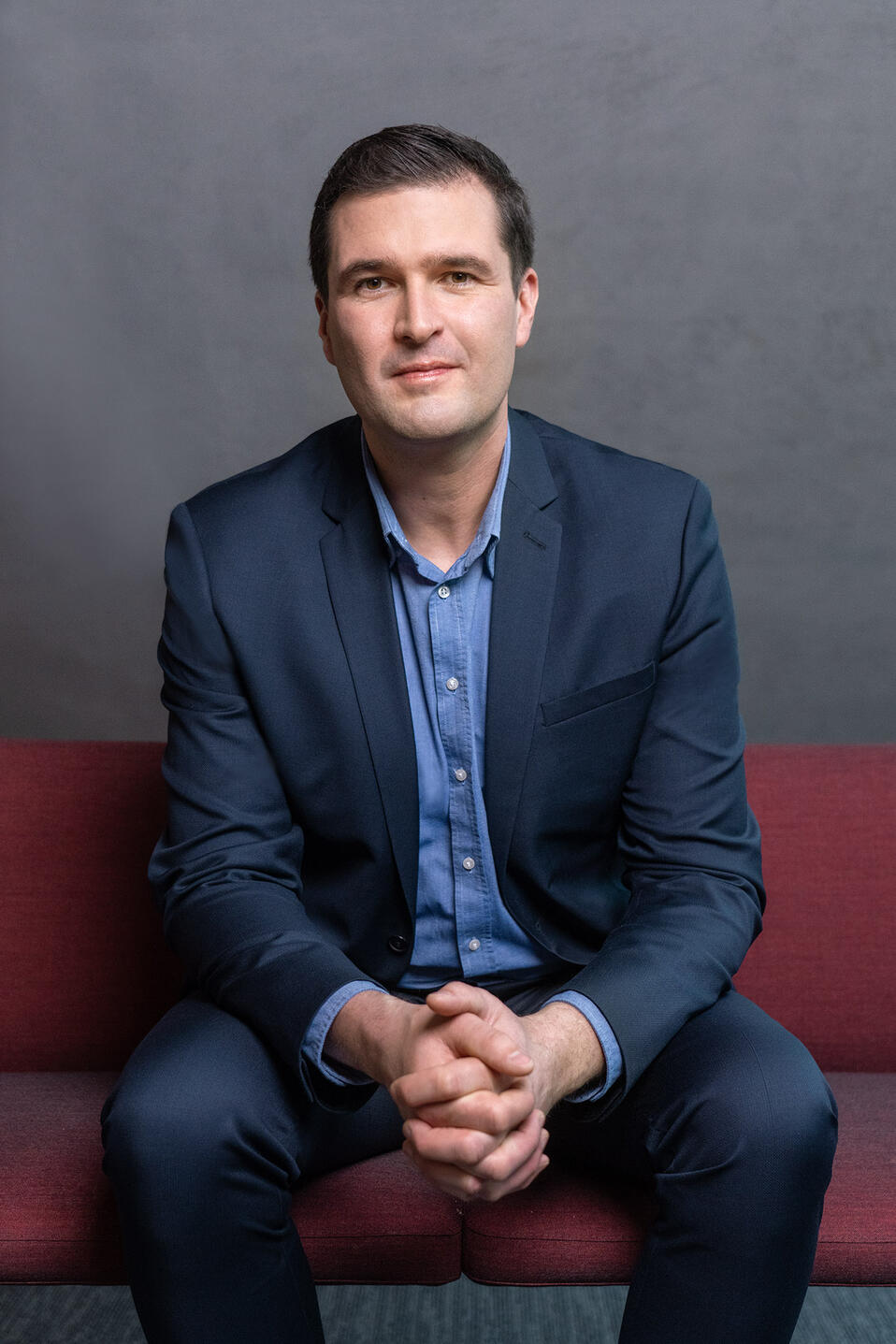
Corporate DCM for Helaba in Paris
Tailored product that serves as a model
Frederick de Graaf, Corporate DCM for Helaba in Paris, likewise emphasises the good collaboration with Faurecia and is delighted to be supporting “a company that is actively involved in transforming the automotive industry with a tailored product.” Moreover, this issue demonstrates “the potential for success of a Schuldschein with ESG components on the international stage.” At the time of its conclusion, the transaction involved the biggest ESG-linked Schuldschein from a non-German issuer. The key figures and objectives of the ESG-linked Schuldschein are tailored to the ambitious sustainability policy pursued by Faurecia over a number of years. Another notable feature of this transaction is that it represents an innovation on the market. Firstly, in that the issue marked a departure from the step-up/step-down system used for ESG-linked interest rates in the promissory note loan market up to this point. Faurecia agreed to dispense with a step down if it achieves its targets. Interest rates will, however, rise in the event that targets fail to be met. According to Frederick de Graaf, a second innovative factor was the challenge of aligning the ESG criteria of the Schuldschein with the sustainability-linked bond issued at around the same time. “This is undoubtedly an important step that has already served as a model for future transactions: it is a milestone for the promissory note market.”
“This is undoubtedly an important step that has already served as a model for future transactions.”
Frederick de Graaf,
Corporate DCM for Helaba in Paris
Current projects in the field of sustainability
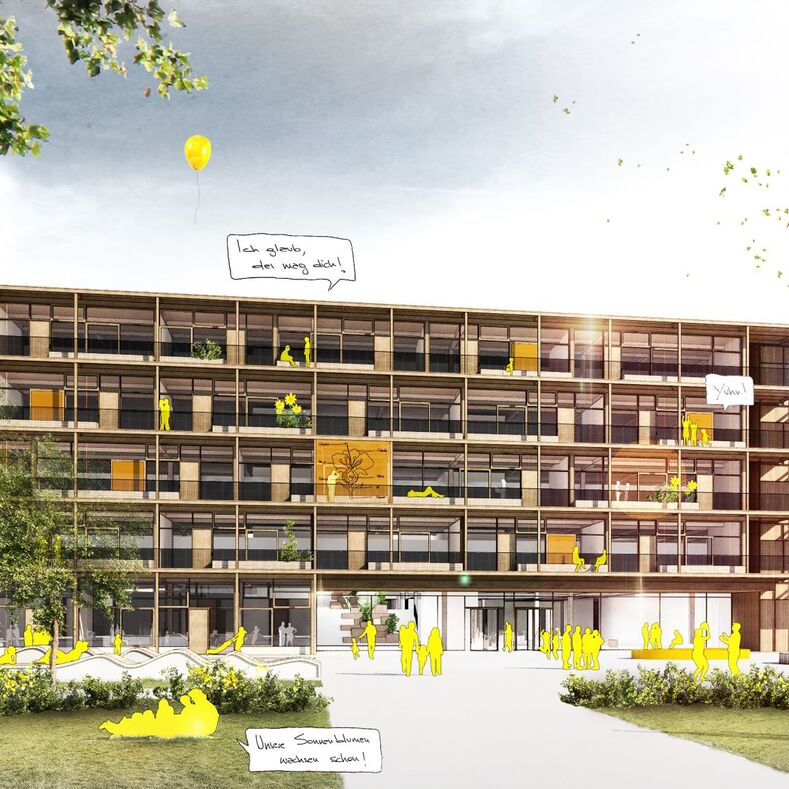 Financing of schools and educational infrastructure
Financing of schools and educational infrastructureFinancing of schools and educational infrastructure
In Nuremberg, Helaba has joined forces with Sparkasse Nürnberg to finance the new Martin-Behaim-Gymnasium, a college preparatory school that will be attended by about 1,500 students.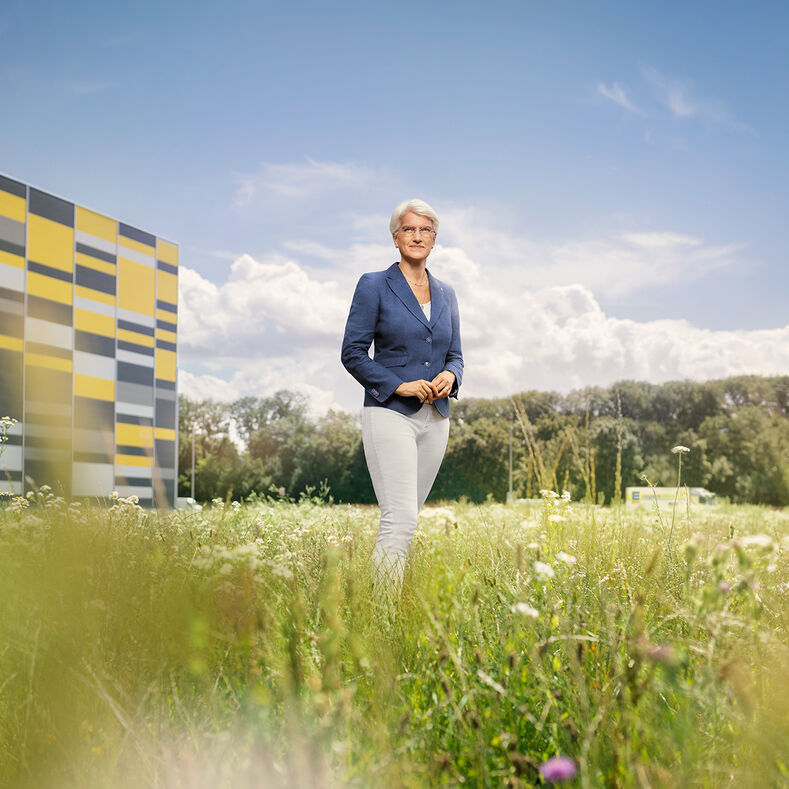 Edeka Südwest
Edeka SüdwestEdeka Südwest
For the German supermarket chain EDEKA Südwest, sustainability is a key tenet of its corporate strategy and is actively embraced in a multitude of ways. Helaba supports this with a sustainability linked loan and a high level of expertise.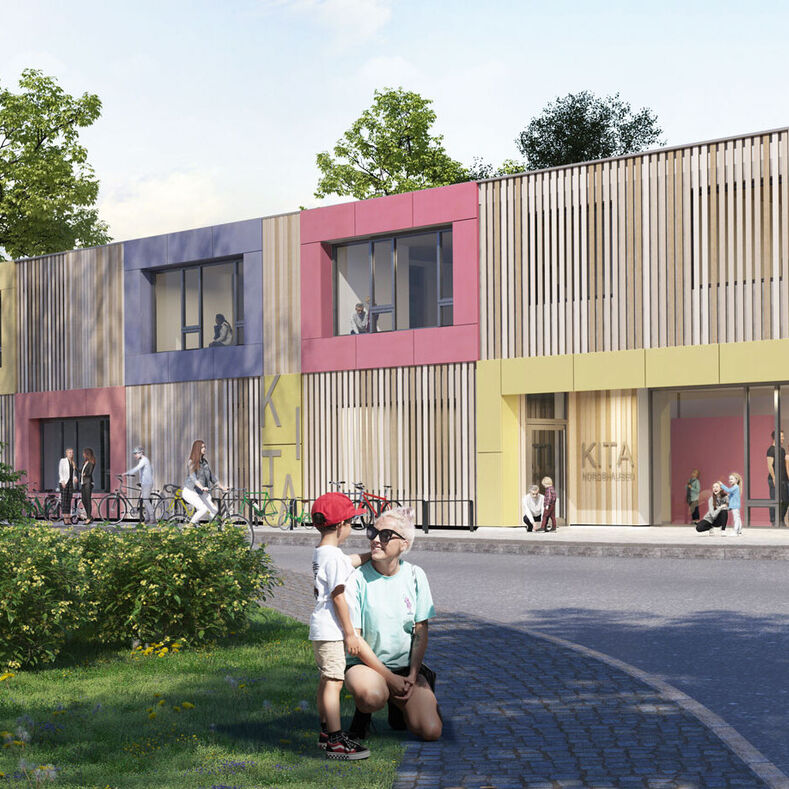 Investing in the future
Investing in the futureInvesting in the future
Helaba sets store by partnerships with private or partially private companies when it comes to financing projects – especially when the latter are implemented sustainably and involve an institution of such significance for the future as a childcare facility. Municipal authorities like the City of Kassel benefit from projects of this nature.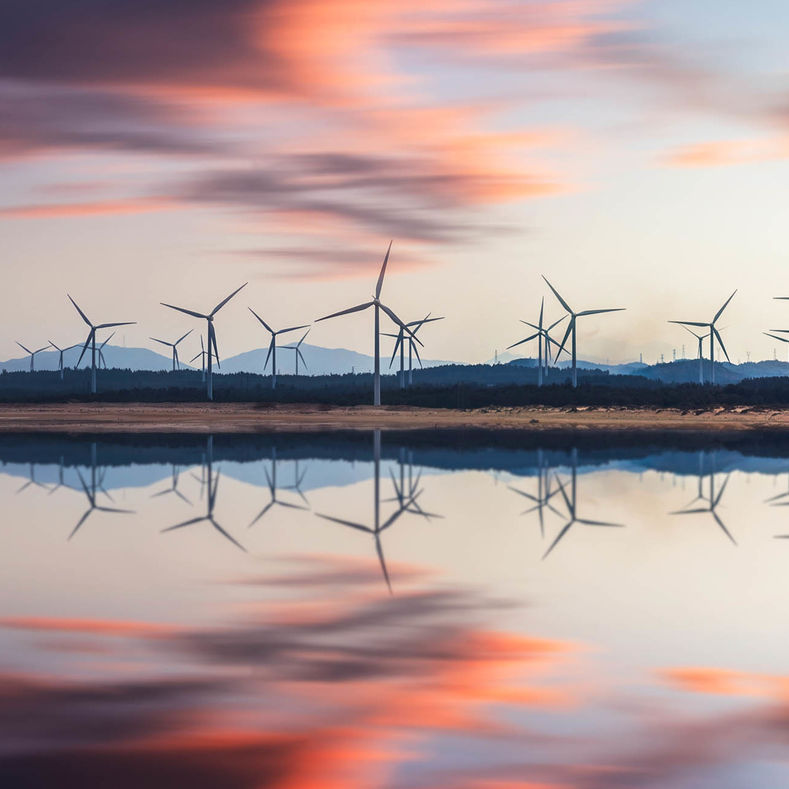 Catching the wind
Catching the windCatching the wind
One of the cornerstones of the transformation of the energy system, wind power requires complex financing solutions. Stefan Seibel, Vice-President Renewables Team and qualified industrial engineer, knows the ropes.



